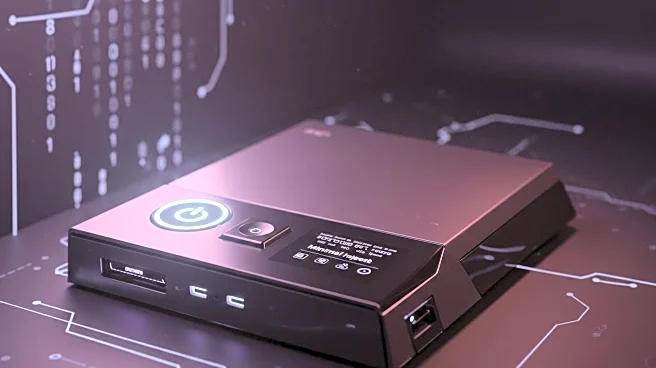What's Happening?
Valve's rumored 'Fremont' console has been identified in Geekbench's CPU results, showcasing a custom AMD CPU and Radeon RX 7600 graphics. Initially mentioned in an HDMI CEC test, this is the first instance of the device running software, specifically Windows 11 Pro, rather than SteamOS. The console features an AMD Custom chip with six cores and 12 threads, codenamed Hawk Point 2, which is a revision of AMD's Phoenix APU. The device is reportedly designed as a TV-focused PC box or console, but its current configuration raises questions about its intended operating system and market positioning.
Why It's Important?
The appearance of Valve's 'Fremont' console running Windows 11 instead of SteamOS suggests potential shifts in Valve's strategy for living room gaming devices. This development could impact the gaming industry by introducing a new competitor in the console market, potentially offering a more affordable alternative to high-end gaming PCs. The use of older AMD hardware aligns with Valve's history of prioritizing cost-effectiveness over cutting-edge technology, as seen with the Steam Deck. This approach may appeal to gamers seeking a supplementary device rather than a primary gaming system.
What's Next?
Valve's 'Fremont' console is expected to undergo further development before its official release. The gaming community and industry analysts will likely monitor its progress closely, especially regarding its operating system choice and pricing strategy. If Valve opts to integrate SteamOS, it could strengthen its ecosystem and offer a unique selling point. Additionally, the console's specifications suggest it will target mainstream consumers rather than high-end gamers, potentially influencing market dynamics and consumer preferences.
Beyond the Headlines
The decision to run Windows 11 on the 'Fremont' console may reflect broader trends in the gaming industry, where interoperability and software flexibility are increasingly valued. This move could also indicate Valve's interest in expanding its reach beyond traditional SteamOS users, potentially attracting a wider audience. The console's development may prompt discussions about the future of gaming platforms and the role of operating systems in shaping user experiences.








